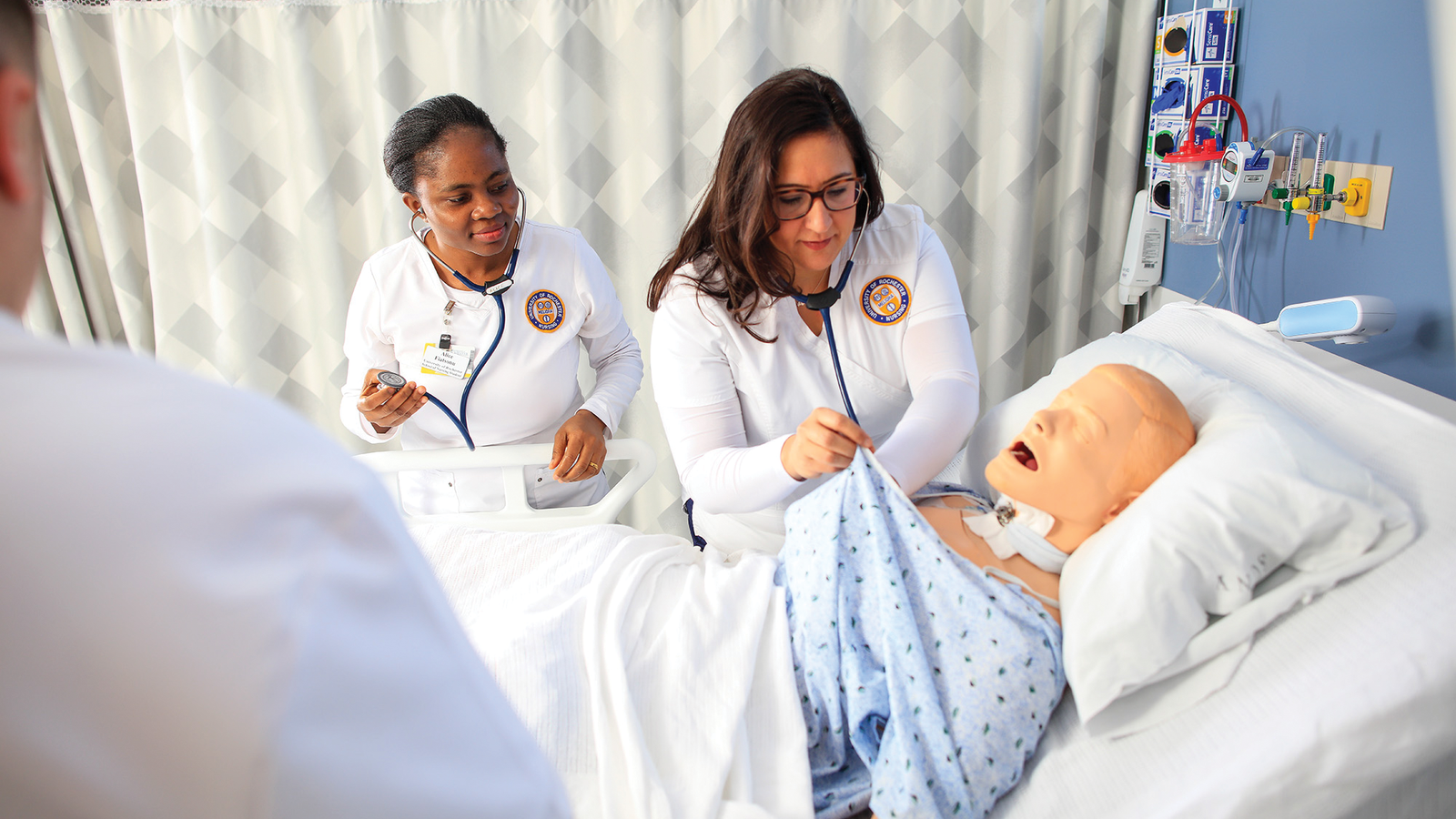Since earning her bachelor’s degree in health and society from the University of Rochester (UR) in the 1990s, Mona Sepulveda has pursued various career paths, including work in sales, as a medical health plan auditor, and serving in the U.S. Navy.
Now Sepulveda has returned to New York state with her family to realize her dream of serving as a front-line health care worker. She is among the first cohort of UR Nursing Scholars, who began the 12-month Accelerated Bachelor’s in Nursing Program in the fall, spearheaded by the UR School of Nursing.

“I look forward to making a difference, because not only do I just want to help people get well, but ultimately, [I want to] get the clinical experience and the knowledge to help my peers at a greater level [as] a policymaker,” Sepulveda says.
Four main tenets of the UR Nursing Scholars program are attracting Sepulveda and other students — the program’s length, cost, mentoring, and guaranteed job placement. Scholars are granted full-tuition scholarships upon signing an agreement committing to three years of employment with Strong and Highland Hospitals within the UR Medical Center (URMC) system upon graduation.
Throughout the yearlong nursing program, students complete 49 credit hours over three semesters: fall, winter, and spring. During that time, they also have more than 700 clinical hours in medical-surgical nursing, obstetrics, pediatrics, and psychiatry at the URMC campus. Upon graduation, they complete the NCLEX-RN exam to obtain registered nurse licensure.

“[It’s typical to] only get federal funding for one bachelor’s degree,” says Lisa Kitko, PhD, UR School of Nursing dean. “So the beauty about this program is it opens up opportunities for nursing students who financially would not have been able to [otherwise] pursue a second bachelor’s [degree].”
Due to huge interest before the program officially launched, the School of Nursing and URMC increased program capacity from 33 to 120 students per year.
“We have high academic standards and the interest we were getting [came from] students that we just couldn’t turn down,” Kitko says.

(Photo courtesy of UR Nursing)
The inaugural cohort of 40 scholars has attracted people from across the country between the ages of 21 and 53. Nearly 40% are from underrepresented groups. Students come from a range of past experiences, including working for the FBI, in the culinary field, and in music, notes Kitko.
“We are very excited about the diversity of our applicants and the past experiences of our applicants,” Kitko says. “I think that they are certainly going to help us adhere to our mission for providing the next generation of nurse leaders.”
Ultimately, the program is addressing the shortage of nurses in the region by training a diverse local workforce. Historically, 50% of UR nursing graduates accept employment within the URMC system. Kitko says they aim to keep all alumni in the community.
“We know that [patient] outcomes are better when you have a very diverse workforce,” she says. “So that is critically important to us as an academic unit, as a hospital system, and certainly as a community.”●
This article was published in our January/February 2024 issue.
The University of Rochester School of Nursing is a 2023 Insight Into Diversity Health Professions HEED Award Recipient.
Above: The University of Rochester Nursing Scholars Program covers tuition for students enrolled in the Accelerated Bachelor’s in Nursing Program.




















